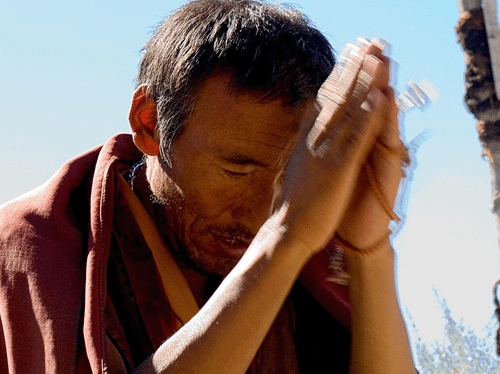.

.
In every school of Christianity,
we see people who follow the same spirit,
who do not want to speculate on what cannot
be speculated about. "Negative theology"
is an effort and practice to prevent Christians
from being caught by notions and concepts
that prevent them from touching the living
spirit of Christianity. When we speak of
negative theology, the theology about the
Death of God, we are talking about the
death of every concept we may have of God
in order to experience God as a living
reality directly.
A good theologian is one who says almost
nothing about God, even though the word
"theology" means "discourse about God."
It is risky to talk about God. The notion
of God might be an obstacle for us to touch
God as love, wisdom, and mindfulness.
The Buddha was very clear about this.
He said, "You tell me that you are in love with
a beautiful woman, but when I ask you,
'What is the color of her eyes? What is her
name? What is the name of her town?'
you cannot tell me. I don't believe you are
really in love with something real."
Your notion of God may be vague like that,
not having to do with reality. The Buddha was
not against God. He was only against notions
of God that are mere mental constructions
that do not correspond to reality, notions
that prevent us from developing ourselves
and touching ultimate reality.
That is why I believe it is safer to approach
God through the Holy Spirit than through
the door of theology. We can identify
the Holy Spirit whenever it makes its
presence felt. Whenever we see someone
who is loving, compassionate, mindful,
caring, and understanding, we know
that the Holy Spirit is there.
.
From Living Buddha, Living Christ
Thich Nhat Hanh





































